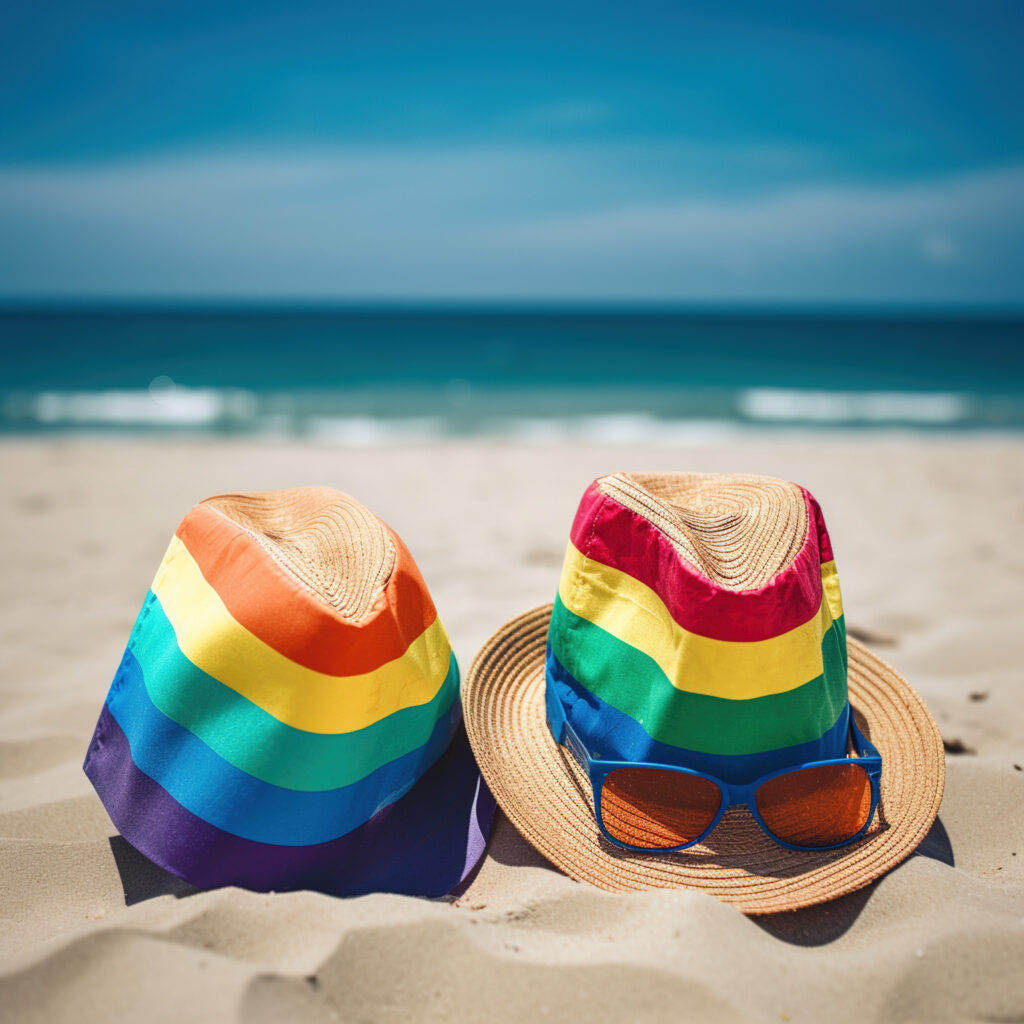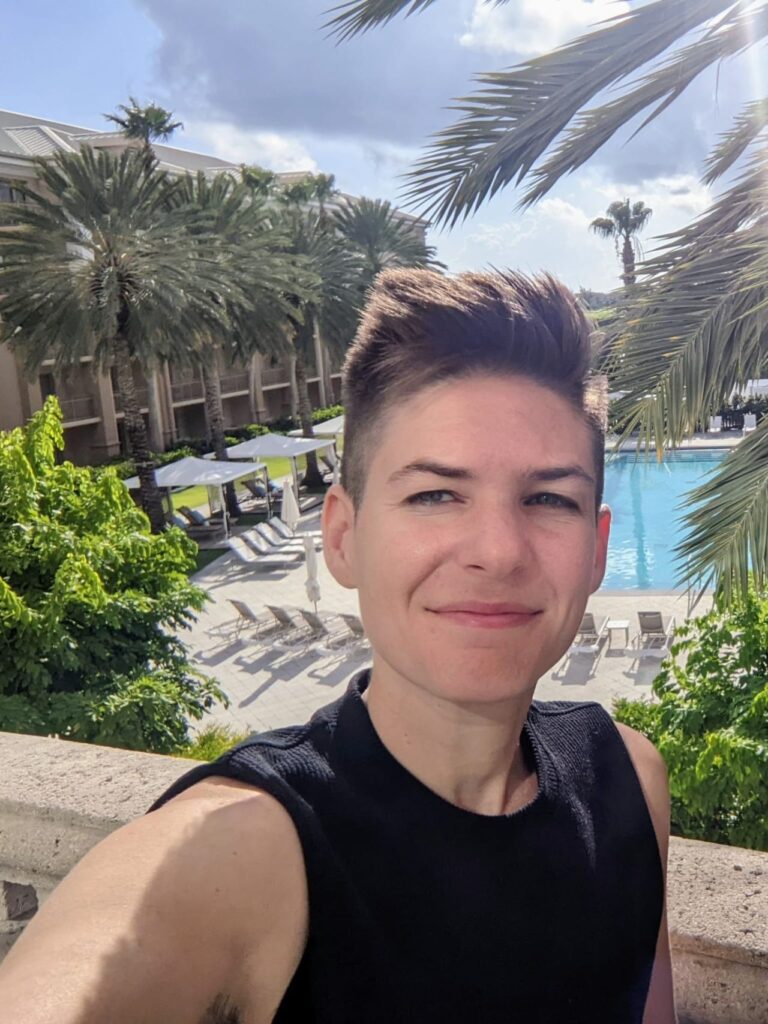

Features
Business Travel
Diversity & Inclusion
Boarding without bias: How employers can help 2SLGBTQI+ staff feel safe when travelling for work
August 30, 2023
By
Todd Humber
 Photo: Adobe Stock
Photo: Adobe Stock Nate Shalev spent a lot of time researching a beach vacation with his wife.
There were three criteria for the trip: It had to be legal to be gay at the destination, safe to be trans, and logically feasible. When the dust settled, there were only three options.
“We spent so much time researching laws, cross referencing reviews, and asking for recommendations,” said Shalev, who is trans. “And this was all for a vacation.”
It raised an issue for Shalev: This was a fun, recreational trip where they had options and could be picky. But, in the workplace, 2SLGBTQI+ team members don’t have the luxury of choosing destinations when packing bags for business trips.
Shalev, the New York City-based founder of Revel Impact, pointed out that there have been hundreds of anti-trans bills introduced in the U.S. in the past year. The America Civil Liberties Union (ACLU) is tracking 495 anti-LGBTQ bills in U.S. state legislatures.
And just this week, Canada updated its travel advisory for visiting the United States.
“Some states have enacted laws and policies that may affect 2SLGBTQI+ persons,” reads the update from Global Affairs Canada. “Check relevant state and local laws.”
It links to a page with a note stating that foreign laws and customs related to sexual orientation, gender identity and gender expression can be “very different from those in Canada.”
Practical issues for travel
Shalev said there are a few things employers can do to support their teams when travelling for work, and some of them may not be obvious.
For example, Shalev’s legal name is not Nate Shalev.
“If I wasn’t booking my own travel, I would have to have this kind of awkward conversation about my passport and my ID,” they said.
Simply letting employees make their own arrangements can avoid that headache, said Shalev. Another consideration is that airport security can pose additional challenges and is “often more uncomfortable for queer folks travelling.”
“For example, is someone making that immediate judgment about your gender because they’re pushing a button on a scanner?” they said.
If you’re travelling with a group, say with colleagues heading to a conference, “you’re most likely going to be the one person who is singled out. And then you have to have this interaction with the TSA person to say, ‘This is who I am.’ It can feel very bad in the moment and very stressful.”
Bathrooms are also a significant issue and source of stress for trans workers, they said. And as you’re heading off to the bar for post-meeting or after conference drinks with the team, is it gay friendly?
Shalev offered several tips for employers in supporting 2SLGBTQI+ staff on business trips. It includes being proactive and talking with employees before departure. Saying: “I know we have that client meeting coming up in Florida. How are you feeling about it? What are your concerns? Then work through solutions together,” said Shalev.
“The reality of being LGBTQ means that sometimes we have to do things that are unsafe but we do not have to do them alone,” they said. “Talk to your teams about what’s going on. Start the conversation even if you don’t know what the solution will be or if there will even be a solution.”
The Canadian perspective
Michael Bach, speaker and author of the best-selling book Alphabet Soup: The Essential Guide to LGBTQ2+ Inclusion at Work, said Shalev raises some really important questions employers often don’t think about.
“Travelling globally is one thing. As of today, there are 66 countries or jurisdictions that criminalize consensual same-sex activity between two men. Forty one jurisdictions criminalize sex between two women. In 12 of those countries, the potential penalty is death. Fourteen countries criminalize trans people. That doesn’t consider countries where it may not be illegal to be 2sLGBTQI+, but the treatment of 2sLGBTQI+ is far from inclusive. Pick a Caribbean island. Most of them are not safe.”
Bach pointed to a risk map, published by Erin Reed. If you look at Florida, for example, it just says “Do not travel.”
“And that’s because it’s fully illegal to be trans in Florida right now. Nineteen states are labelled “worst active anti-trans laws.” Only 15 states are labelled as “safe” for trans people,” he said. “Employers have a responsibility to protect their employees, so if they suddenly have a trans employee in Florida, what are they doing to relocate them to a safe state? Are they having a conference in one of those 20 states? Maybe it’s time to reconsider that decision.”
Travelling within Canada is “somewhat safer,” said Bach, at least legally. Gender identity and gender expression are protected under the Charter of Rights and Freedoms and every provincial and territorial human rights code.
“But that doesn’t mean it’s entirely safe, particularly when someone doesn’t have ‘passing privilege,’” he said.
Passing privilege is a term used to describe 2sLGBTQI+ people who can ‘pass’ as straight and/or cisgender.
“If I’m walking down the street, it’s unlikely that someone will look at me and realize I’m gay. But when they see my nails painted, they might start to suspect that I’m something other than cisgender,” said Bach.
Employers need to consider the risk they’re putting employees in, particularly ones that don’t have passing privilege, when they send them to smaller communities that may not be as inclusive, he said.
“If I’m trans and don’t experience passing privilege, am I going to be safe doing work in Norwich County, Ontario, right now?” he asked, pointing to a London Free Press article about a pride flag ban.
Tips for employers
Bach said employers should be proactive — don’t wait to be asked and don’t put the burden on your 2sLGBTQI+ colleagues to raise the issue.
“Safety and inclusion must be built into everything you do with your people. I shouldn’t have to ask to be in a safe space, just like I shouldn’t have to ask to be in an accessible space. Assume that you have a 2sLGBTQI+ colleague attending,” he said.
Second, create a standard operating procedure that is inclusive.
“For example, if travel is involved, no events will take place in the 66 countries where being 2sLGBTQI+ is illegal or in the 20 states that are not safe,” said Bach. “Florida is off-limits for now. Arizona, New Mexico and California are all great warm options for holding conferences in the winter months.”
Third, if you’re planning an event in a public space, consider the venue’s policies around inclusion.
“If it’s not posted on their website, call the venue and ask. Be blunt: ‘I have 2sLGBTQI+ employees who will be attending this event, and I want to ensure your space is safe for them. What are your policies and procedures around 2sLGBTQI+ inclusion?’” he said.
The bottom line is that employers are responsible for providing a safe working environment.
“That includes your workplace, but it also includes any environment where you have to send your employees, such as a client site,” said Bach.
“Consider enacting a policy and procedure to deal with situations where employees may raise concerns. If a 2sLGBTQI+ employee comes to you and says they’re concerned about going to Norwich right now, how will you respond? The right answer is that they don’t have to go to Norwich, and you’ll send someone else, and there is no punishment, nor will it impact their career.”
Losing talent
Shalev said if 2sLGBTQI+ employees don’t feel supported, they’re going to feel alone if harassment occurs.
“And when you feel alone, even though it’s not happening in your workplace, it is going to affect the way folks feel at work,” they said. “I know, for me, if I didn’t feel like my employer prepared enough or thought about me enough to be able to think about my safety, I’m going to trust my employer a lot less. Then, it’s only going to be a matter of time until I leave that job.”
The issues facing workers aren’t unsolvable problems, said Shalev. Employers and managers can’t adopt that attitude that discrimination happens and it’s just the way the world is, they said.
“That may be the case, but there are so many ways that we can both create safety for one another,” said Shalev. “We can’t control what happens in the world at large but, on our teams, we absolutely can. We can make sure that people feel like they are safe and that our companies care for us.”
Knowing that your company is there to support you, with a plan, can really affect an employee’s sense of well-being.
“Even though I might down the street and face harassment, if I know in my office that’s not going to happen or, I know that if it does happen, I’m going to be able to talk about it with my manager because we’ve already had this conversation and I know there is a safe place for me to go,” they said. “It can make a huge difference.”
Print this page

